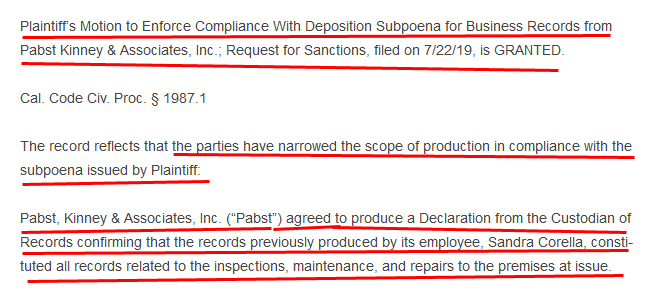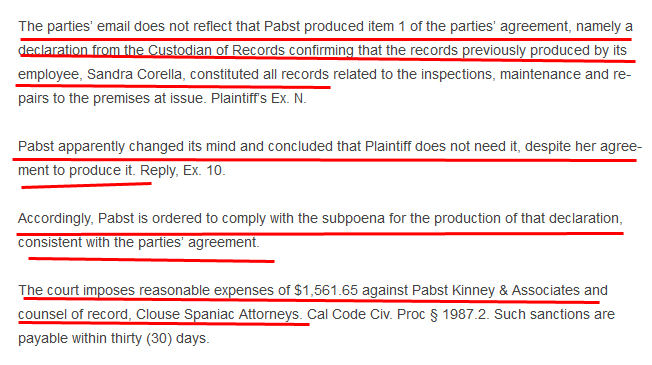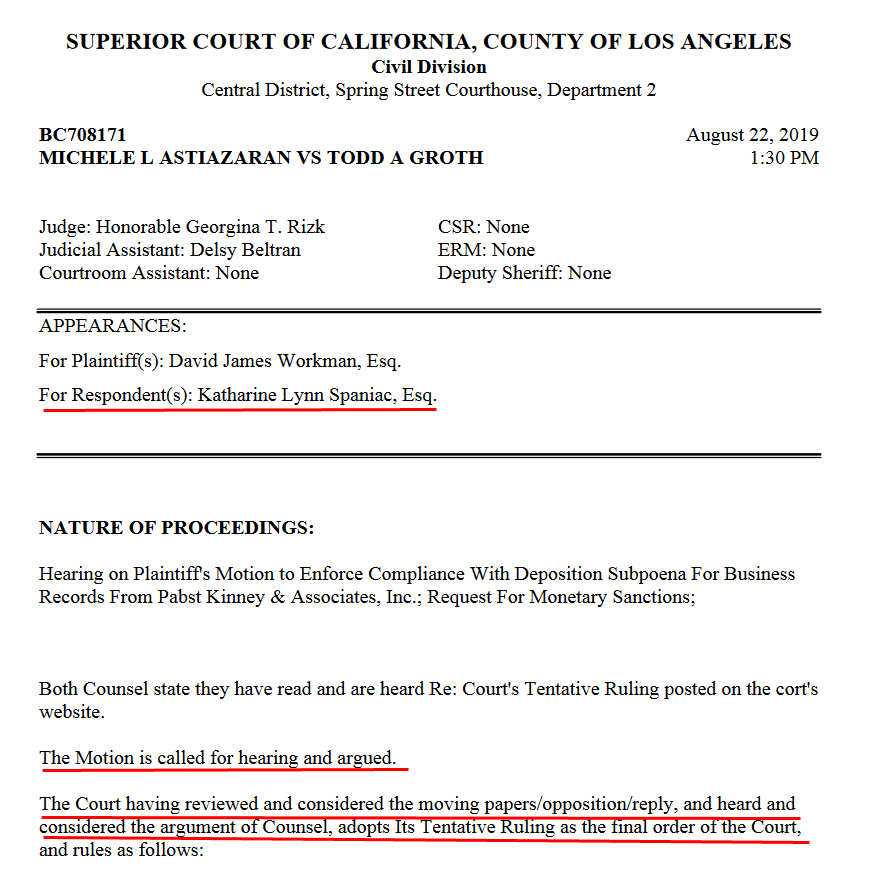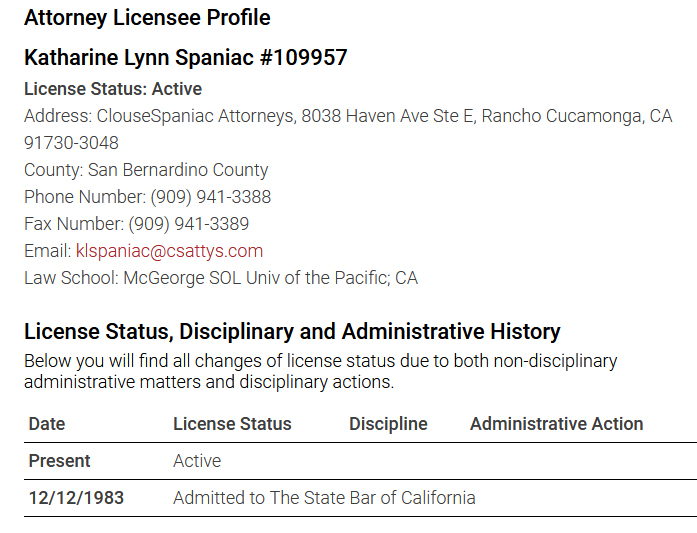Astiazaran v Groth, Los Angeles County Superior Court Case Number BC708171.
From the court's tentative ruling and online county case records it is Lawzilla's understanding the following occurred:
Attorney Katharine Spaniac of the ClouseSpaniac law firm represented a third party to the lawsuit, Pabst Kinney and Associates, a property management company who was subpoened by the plaintiff to produce records about a property.
The parties agreed to narrow the scope of the subpoena.
It was also agreed that Spaniac's client would provide a declaration confirming records it produced were "all" the records relating to the property inspections, maintenance and repairs.

Later, however, attorney Katharine Spaniac, Esq.'s client reneged on the agreement and decided not to produce a declaration.
Plaintiff filed a motion to compel and sought sanctions.
The judge agreed with plaintiff.
The court tentatively ordered Katharine Spaniac's client to produce the agreed upon declaration. The court also indicated it would sanction the ClouseSpaniac law firm and its client $1561.65.

The hearing was held before the judge and attorney Spaniac appeared to argue the motion.
After considering the attorney's argument the judge ruled the tentative order was being adopted as the final order of the court.

The court cited Code of Civil Procedure section 1987.2 as the basis for sanctions.
Section 1987.2 says sanctions can be imposed if a subpoena motion was "opposed in bad faith or without substantial justification."

We do not recall seeing an order like this - sanctioning a nonparty business and their attorney for refusing to provide an agreed upon declaration confirming all documents had been produced.
Seemingly obvious, when a party to a lawsuit subpoenas records about a subject they want all records.
Here, the judge said Spaniac and her client negotiated changes to a subpoena. Documents were then produced per the agreement.
But an agreement to provide a declaration that "all" documents had been provided was apparently reneged on.
Why?
In our view this should have been a simple issue. Documents are produced and a declaration is provided that these are all the documents being sought. Happens many times every day in lawsuits.
Given the scope of the subpoena was negotiated to be narrowed it is hard to fathom why there was no compliance about a declaration.
From what we read, the action suggested to us, or at least gave us the impression, Spaniac's client was withholding documents that were promised to be produced.
We only have the court's tentative order and public minute order confirming that as the final order. More detail may be in the motions.
Bottom line: The judge imposed sanctions and decided Katharine Spaniac's law firm deserved to be sanctioned for its misconduct.
The law referred to by the judge indicates sanctions were for opposing plaintiff's motion in bad faith or without substantial justification.
Katharine Spaniac was admitted to the California Bar in 1983. Bar Number 109957.
ClouseSpaniac Attorneys
8038 Haven Avenue Suite E
Rancho Cucamonga, California 91730
Law School: McGeorge School of Law

Sanctions are Recoverable as a Judgment - Analysis of the little known fact that sanctions awarded in a lawsuit can be enforced as their own separate judgment. Surprise someone by putting a lien on their bank account, home, wages, etc.